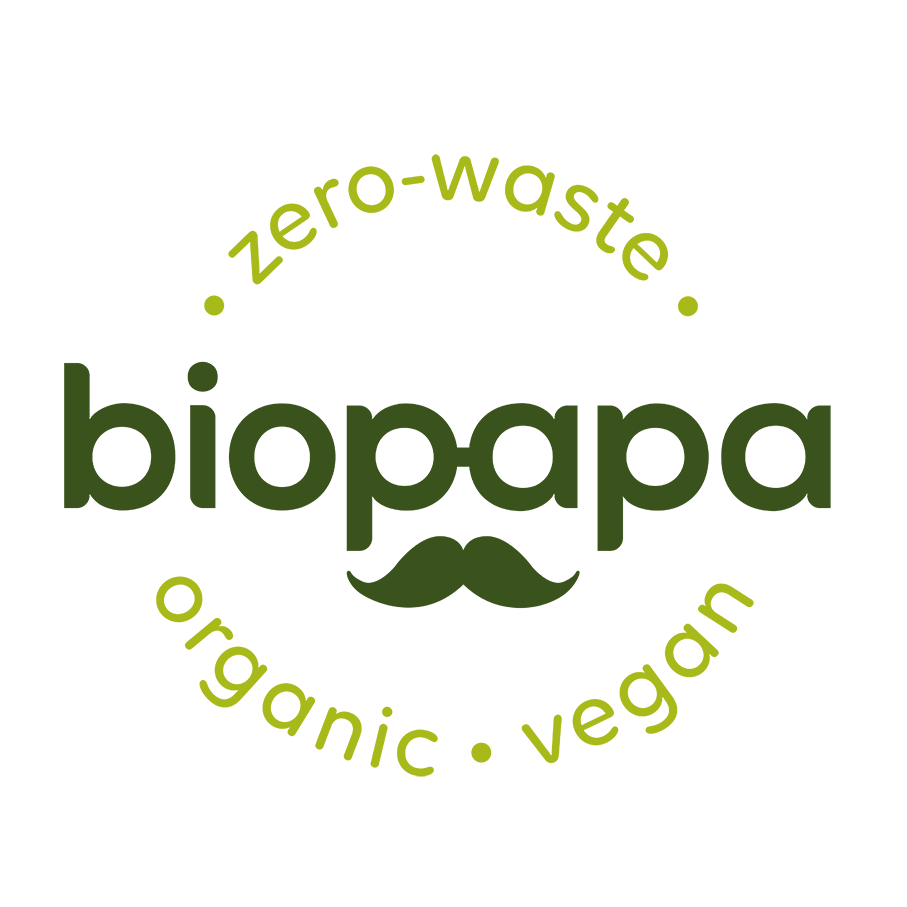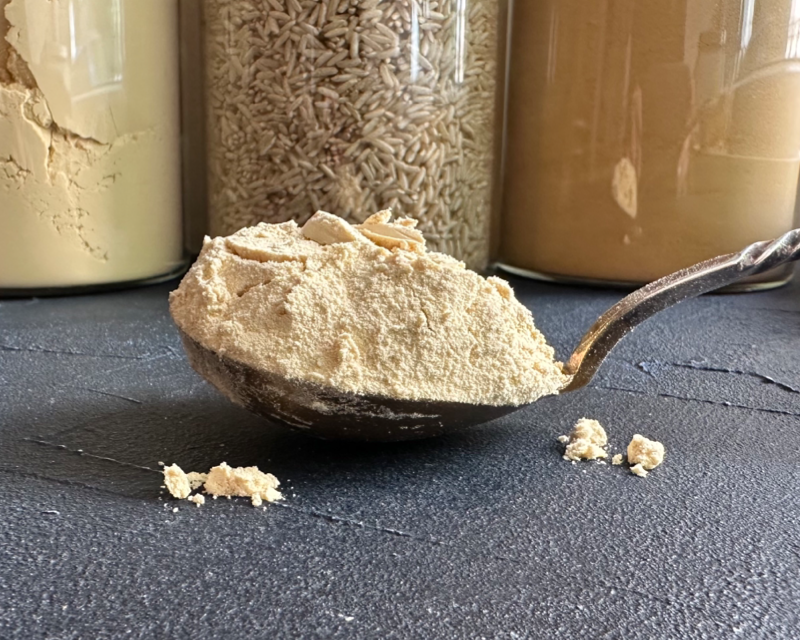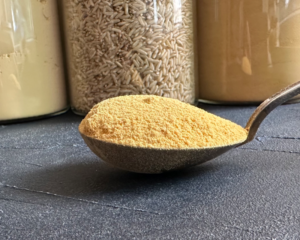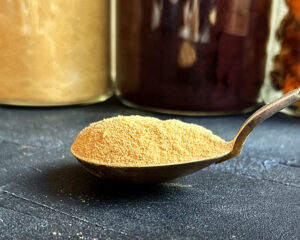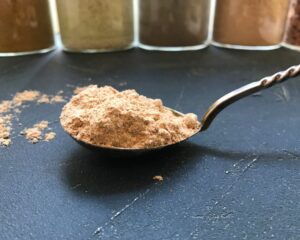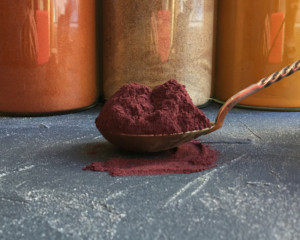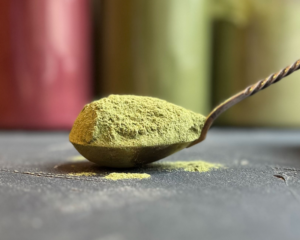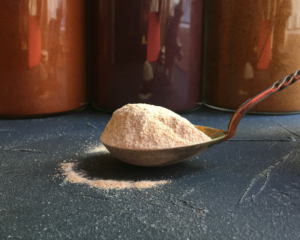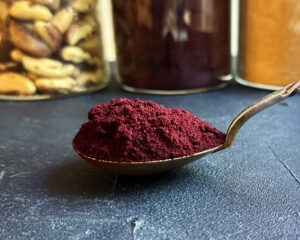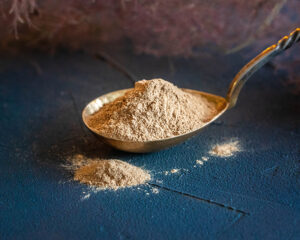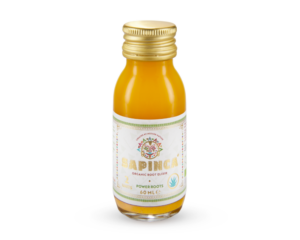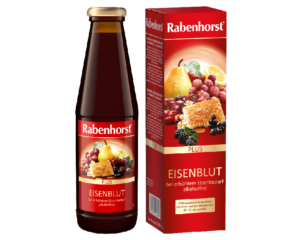Organic pea protein powder (isolate, 80% protein)
From 1.30€
Organic pea protein isolate is made from split yellow peas (Pisum sativum), a legume known for its exceptional protein content. The process involves separating pea protein from carbohydrates and fibre, resulting in a highly concentrated protein powder. The separation process usually involves cleaning, drying and milling the peas, followed by removal of starch and fibre to obtain a pure protein isolate. This careful process ensures that pea protein powder isolate is a pure, harmless and nutrient-rich source of vegetable protein, making it an ideal choice for a variety of dietary and culinary needs. Consumers looking for organic products can trust that organic pea protein isolate has been produced according to organic principles, emphasising sustainability, environmental responsibility and the absence of synthetic chemicals. This process results in a high quality organic product.
Advantages of pea protein isolate powder:
– Light source. The protein content of pea protein isolate often exceeds 90% by weight. This makes it an excellent choice for those looking to increase their protein intake, especially vegans, vegetarians and athletes.
– Amino acids. While many plant protein sources lack certain essential amino acids, pea protein is unique in that it contains a balanced blend of amino acids, including branched-chain amino acids (BCAAs), leucine, isoleucine and valine. They are essential for muscle recovery and growth.
– Seeding. Pea protein is generally easy to digest and is less likely to cause gastrointestinal discomfort compared to other plant protein sources such as soya or other beans.
– Weight management. A high protein intake can help you feel full quickly and possibly reduce your overall calorie intake.
– Heart health. Pea protein has been associated with potential cardiovascular benefits, including the ability to lower blood pressure and cholesterol.
Attention! In some people, the consumption of pea protein can cause temporary gas and bloating. These side effects can be reduced by gradually increasing consumption. Although rare, some people may be allergic to peas and experience allergic reactions when consuming pea protein. Be careful. If you feel indigestion, reduce your intake or try another protein source.
Use of pea protein powder isolate:
– Smoothies. For a quick protein boost, add some pea protein powder to your cocktail.
– Pastries. To increase the protein content, replace some of the flour in baked goods recipes such as pancakes, muffins and biscuits with a pea protein isolate.
– Road. Add to soups, stews or sauces to boost the protein content of dishes.
– Energy baton. Make homemade protein bars using pea protein isolate, nuts and dried fruit.
– Salad dressings. Prepare salad dressings from pea protein powder isolate for a creamy texture and added protein.
Sources: https://www.researchgate.net, https://www.healthline.com
NB! The information provided here should not be interpreted as a recommendation for treatment or other types of health problems. We recommend that you make personal health decisions after evaluating different sources of information.
100% yellow/white organic peas
Energy value 1687 kJ / 403 kcal
Fats 7,5 g
- of which saturated fatty acids 2,3 g
Carbohydrates 2,2 g
- of which sugars <0,1 g
Fibre 2,6 g
Protein 83 g
Salt 2,5 g
Store in a dry and cool place, out of direct sunlight.
